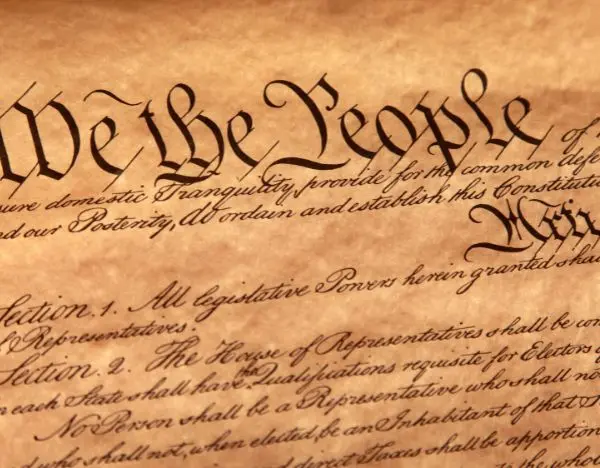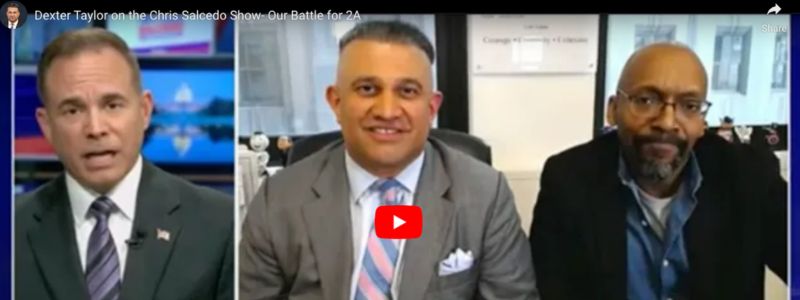
A troubling narrative is unfolding—a narrative where the justice system appears to turn its sights on innocent citizens. Let's delve into the stark realities faced by individuals like Dexter Taylor, who is ensnared by an overzealous application of surveillance and law enforcement. At Varghese and Associates, P.C., we are at the forefront of challenging these injustices, advocating for a system recalibration that seems to have lost its way.

Dexter Taylor was wrongly convicted under the state’s stringent gun laws. He faced multiple felonies, including criminal possession of a weapon, for his possession of unserialized firearms and unfinished receivers. These charges, based on New York’s draconian laws, led to an unjust conviction and a severe 20-year prison sentence, spotlighting the glaring misapplication of justice.
The detailed monitoring of Dexter Taylor by New York authorities mirrors the oppressive surveillance state portrayed in George Orwell's "1984." Like the omnipresent control in the novel, Taylor’s lawful activities—purchasing firearm parts and engaging in a legal hobby—were meticulously tracked. This form of state power, where everyday actions are monitored and can be twisted to fit a narrative of guilt, showcases a chilling abuse of authority.
The invasive scrutiny exemplifies the dangers of such surveillance: it goes beyond observation and suggests an attempt to frame ordinary legal behavior as criminal. This situation highlights a sobering reality: the line between Orwellian fiction and the current surveillance state is blurring, with profound implications for individual liberties and justice.
Taylor’s ordeal sends a clear message: in New York, buying legal firearm parts is not merely a transaction—it's a trigger for state scrutiny. His case is not an anomaly but a cautionary tale that the freedom to buy, build, and own firearms is closely watched, with every legal purchase today potentially used against you tomorrow.
As his legal defenders, Varghese and Associates, P.C. is challenging the constitutionality of the laws that ensnared Taylor. We argue fervently against the oppressive gun laws that conflict with the Second Amendment, asserting that Taylor’s conviction is not only unfounded but a dangerous precedent that undermines the rights of all Americans.
We are currently preparing to appeal Taylor’s conviction, armed with evidence and a robust legal strategy that underscores the futility of obtaining a firearm license in New York—a near-impossible task highlighted by our rigorous research and advocacy. We fight not just for Taylor, but for every citizen whose rights are jeopardized by overreaching regulations.
New York's exceptionally strict gun laws, among the harshest in the United States, reflect a deep-seated commitment to curbing gun violence, particularly in densely populated urban areas like New York City. However, these laws also raise significant concerns about their alignment with constitutional rights and the undue burdens they place on law-abiding citizens.
In light of these factors, the case of individuals like Dexter Taylor exemplifies how stringent regulations can ensnare well-intentioned citizens, challenging the balance between enforcing safety and upholding constitutional freedoms. This raises critical questions about the fairness and constitutionality of such laws, emphasizing the need for a more nuanced approach to gun legislation that respects individual rights while addressing public safety concerns.
The Second Amendment isn't about your right to hunt deer or shoot clay pigeons; it's about the power and protection of the individual. Crafted by visionaries who fought off the yoke of tyranny, this amendment serves as a crucial check on government power—a fact modern lawmakers seem eager to forget.
When the Founding Fathers penned "the right of the people to keep and bear Arms, shall not be infringed," they weren’t just throwing words around. They meant business. This wasn’t about muskets or militias but about ensuring personal security and deterring despotic government. Today’s policymakers could use a history lesson to remind them that these rights were set in stone for serious reasons.
In the ongoing saga of Dexter Taylor, we don't just see a man fighting for his rights; we see a reflection of the battles our Founding Fathers anticipated. The rights they fought for are now treated as suggestions by some in power, reminding us that defending our constitutional freedoms requires more than reverence—it demands resistance.
If you are ensnared in a situation similar to Dexter Taylor's, where New York State scrutinizes or infringes upon your legal activities and rights, know that you are not alone. We stand ready to defend and advocate for your rights with the same fervor and dedication we have shown in Dexter's ongoing legal battle.
Reach out to us and join a growing community of citizens who refuse to be silenced or punished unjustly. Together, we can resist overreach and uphold the freedoms guaranteed by our Constitution. Contact us now, and let us help you fight unfair prosecution and defend your rights.
Your fight is our fight, and we’re here to win it.
Attorney Advertising | Prior results do not guarantee a similar outcome. The information on this website is for general information purposes only. Nothing on this site should be taken as legal advice for any individual case or situation. This information is not intended to create, and receipt or viewing does not constitute, an attorney-client relationship. This site is protected by reCAPTCHA and the Google Privacy Policy and Terms of Service apply.